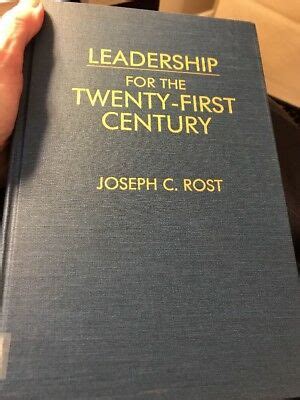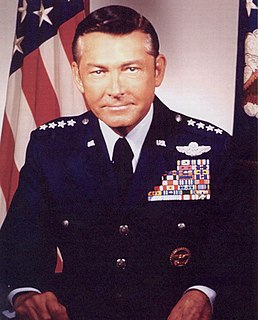A Quote by Albert Bandura
From the social cognitive perspective, it is mainly perceived inefficacy to cope with potentially aversive events that makes them fearsome. To the extent that people believe they can prevent, terminate, or lessen the severity of aversive events, they have little reason to be perturbed by them. But if they believe they are unable to manage threats safely, they have much cause for apprehension.
Related Quotes
Leadership is the name that people use to make sense out of complex events and the outcomes of events they otherwise would not be able to explain. In other words, people attribute leadership to certain individuals who are called leaders because people want to believe that leaders cause things to happen rather than have to explain causality by understanding complex social forces or analyzing the dynamic interaction among people, events, and environment.
Many people believe that decentralization means loss of control. That's simply not true. You can improve control if you look at control as the control of events and not people. Then, the more people you have controlling events - the more people you have that care about controlling the events, the more people you have proactively working to create favorable events - the more control you have within the organization, by definition.
With spectacular events taking up so much of the available anxiety quotient, we need to be constantly reminded of the more workaday threats to our mortality - threats that, while they may also be functions of human error, have become so ubiquitous that we've begun to apprehend them as natural phenomena.
Of course we believe these things. We believe in social security. We believe in work for the unemployed. We believe in saving homes. Cross our hearts and hope to die! We believe in all these things. But we do not like the way that the present administration is doing them. Just turn them over to us. We will do all of them, we will do more of them, we will do them better and, most important of all, the doing of them will not cost anybody anything!
Those of us who obsess over every word and action are constantly recalling past events, but that doesn't make them any less painful, nor does it help us transcend them. To write memoir, you have to not only recollect past events, you have to revisit them. You have to get back to the mental and emotional state you were in during those events.
In ordinary life, we are not aware of the unity of all things, but divide the world into separate objects and events. This division is useful and necessary to cope with our everyday environment, but it is not a fundamental feature of reality. It is an abstraction devised by our discriminating and categorising intellect. To believe that our abstract concepts of separate 'things' and 'events' are realities of nature is an illusion.
But the monotonous life led by invalids often makes them like children, inasmuch as thy have neither of them any sense of proportion in events, and seem each to believe that the walls and curtains which shut in their world, and shut out everything else, must of necessity be larger than anything hidden beyond.
Some dangers are so spectacular and so much beyond normal experience that the mind refuses to accept them as real, and watches the approach of doom without any sense of apprehension. The man who looks at the onrushing tidal wave, the descending avalanche, or the spinning funnel of the tornado, yet makes no attempt to flee, is not necessarily paralyzed with fright or resigned to an unavoidable fate. He may simply be unable to believe that the message of his eyes concerns him personally. It is all happening to somebody else.






































